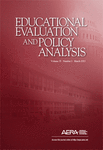Notes: High Standards and Cultural Diversity: Cautionary Tales of Comparative Research—A Comment on “Benchmarking Education Standards” by Lauren B. Resnick, Katherine J. Nolan, and Daniel P. Resnick
Abstract
A recent article by Resnick, Nolan, and Resnick (1995) analyzed the curriculum and examination system for mathematics in France and the Netherlands. The focus of the article was on how the two countries create and maintain “world class standards” in mathematics. However, the authors overlook the real process by which a country like the Netherlands, which has legal autonomy for individual schools, creates a national consensus around high standards for student learning. This contribution describes the formal, legal status of curriculum and examination standards and also the process by which high standards emerge and are maintained over time. Some attention is also paid to new trends in high-stakes examinations. The Dutch approach toward a balance between local autonomy and national, high standards has considerable relevance to the U.S. setting.
Article Notes
-
↵KAREN SEASHORE LOUIS is a professor and Associate Dean for Academic Affairs, Educational Policy and Administration, in the College of Education and Human Development at the University of Minnesota, 104 Burton Hall, 178 Pillsbury Drive, SE, Minneapolis, MN 55455. She specializes in the sociology of education and organizations and has been involved in examining Dutch educational policies for over a decade. During 1995–1996, she was a Fulbright Scholar at the University of Utrecht.
-
↵BERT VERSLOOT is Universitair Docent at the University of Utrecht, Vakgroep Onderwijskunde, Heidelberglaan 2, 3584CS, Utrecht, the Netherlands. He specializes in needs assessment, job-related training, and industrial and vocational education.
-
- Received February 22, 1996.
- Accepted February 29, 1996.




















 Other journals by AERA
Other journals by AERA
